How To Avoid Making Mistakes At Work
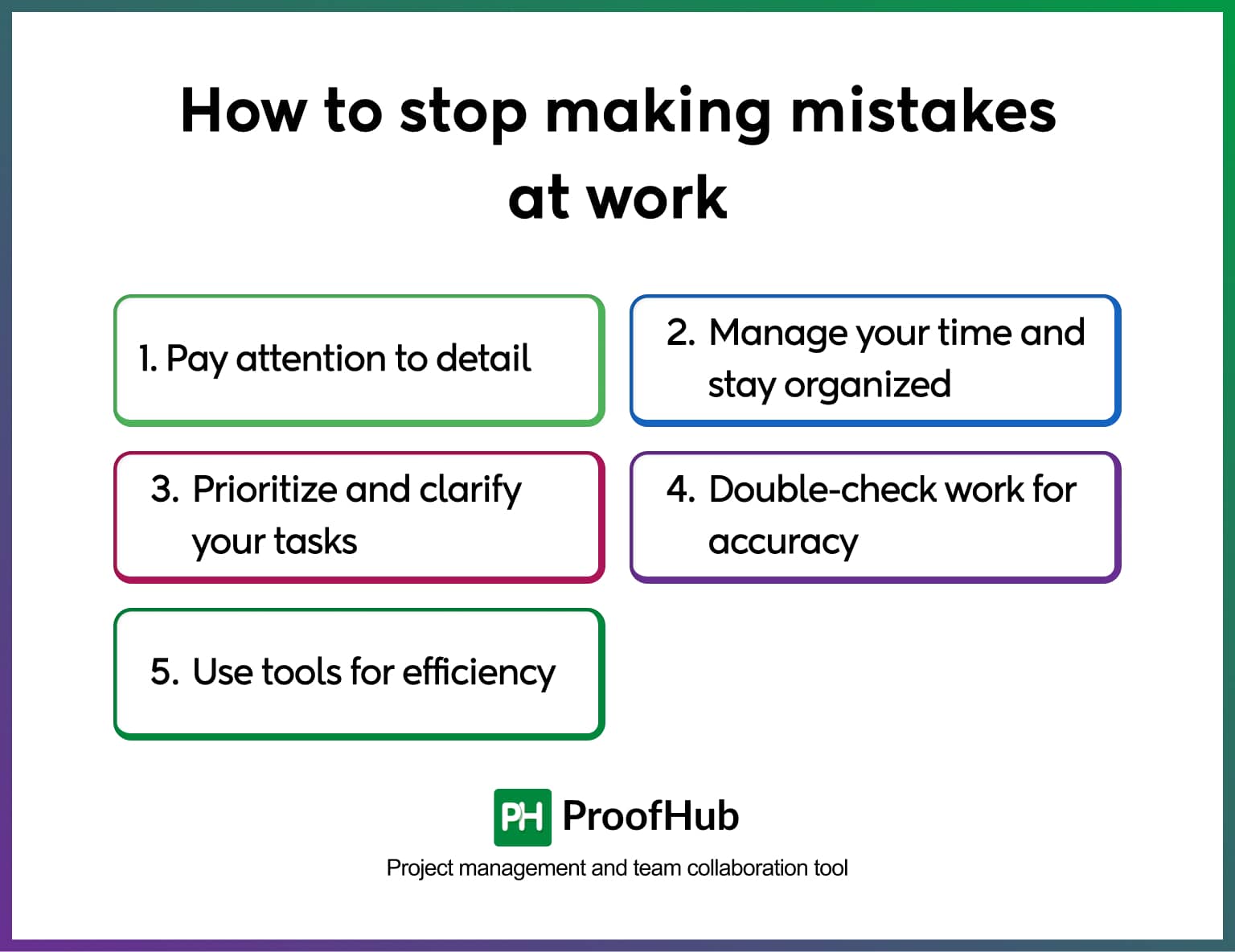
In today's fast-paced work environment, the pressure to perform flawlessly can be overwhelming, leading to mistakes that impact productivity and career advancement. But are errors inevitable? Experts say no. By implementing strategic approaches and cultivating mindful habits, professionals can significantly reduce the likelihood of making mistakes at work.
This article delves into actionable strategies and practical tips, offering a comprehensive guide on how to minimize errors, improve efficiency, and foster a culture of continuous improvement in any workplace. The aim is to empower employees at all levels to take control of their performance and contribute to a more error-free and productive work environment.
Understanding the Root Causes
Many workplace errors stem from common factors. These include poor communication, inadequate training, excessive workload, and distractions. Recognizing these underlying causes is the first step toward implementing effective preventative measures.
Prioritization and Planning
Effective prioritization is crucial. Begin each day by creating a detailed to-do list, ranking tasks by importance and urgency.
Break down large projects into smaller, manageable steps to avoid feeling overwhelmed and to ensure greater accuracy. This also allows for easier progress tracking.
Effective Communication Strategies
Clear and concise communication is paramount. Misunderstandings often lead to errors, so always confirm instructions and expectations with your colleagues and superiors.
Document important decisions and agreements in writing to prevent future discrepancies. Use email or project management software for efficient communication and record-keeping.
Mastering Time Management
Poor time management can lead to rushed work and increased error rates. Utilize techniques like the Pomodoro Technique to maintain focus and prevent burnout.
Schedule regular breaks to avoid mental fatigue and maintain optimal concentration levels. Adequate rest contributes significantly to improved performance.
Seeking Clarification and Guidance
Never hesitate to ask questions if something is unclear. It's far better to seek clarification than to proceed with uncertainty and risk making a mistake.
Leverage the expertise of colleagues and supervisors. Mentorship and guidance can provide valuable insights and prevent common pitfalls.
Double-Checking and Proofreading
Before submitting any work, always take the time to double-check for errors. This includes proofreading documents, reviewing data, and verifying calculations.
If possible, ask a colleague to review your work for a fresh perspective. A second pair of eyes can often catch mistakes that you might have missed.
Utilizing Technology and Automation
Embrace technology to automate repetitive tasks and reduce the potential for human error. There are many software solutions available that can streamline processes and improve accuracy.
Ensure you are properly trained on any software or systems you use. Inadequate training can lead to errors and inefficiencies.
Creating a Culture of Learning
Foster a workplace culture where mistakes are seen as learning opportunities rather than failures. This encourages employees to be more open about errors and to learn from them.
Implement regular training sessions to update skills and knowledge. Continuous learning is essential for staying ahead of the curve and minimizing errors.
Mindfulness and Stress Management
Practice mindfulness techniques to reduce stress and improve concentration. Stress can significantly impair cognitive function and increase the likelihood of errors.
Engage in regular exercise and relaxation activities to manage stress levels. A healthy work-life balance is crucial for optimal performance.
The Significance of Prevention
By proactively implementing these strategies, individuals and organizations can foster a culture of accuracy and efficiency. This will lead to improved productivity, reduced costs, and enhanced reputation.
Ultimately, the key to avoiding mistakes at work lies in a combination of proactive planning, effective communication, and a commitment to continuous learning and improvement. By embracing these principles, professionals can navigate the workplace with confidence and minimize the potential for errors.
"The only real mistake is the one from which we learn nothing." - John Powell
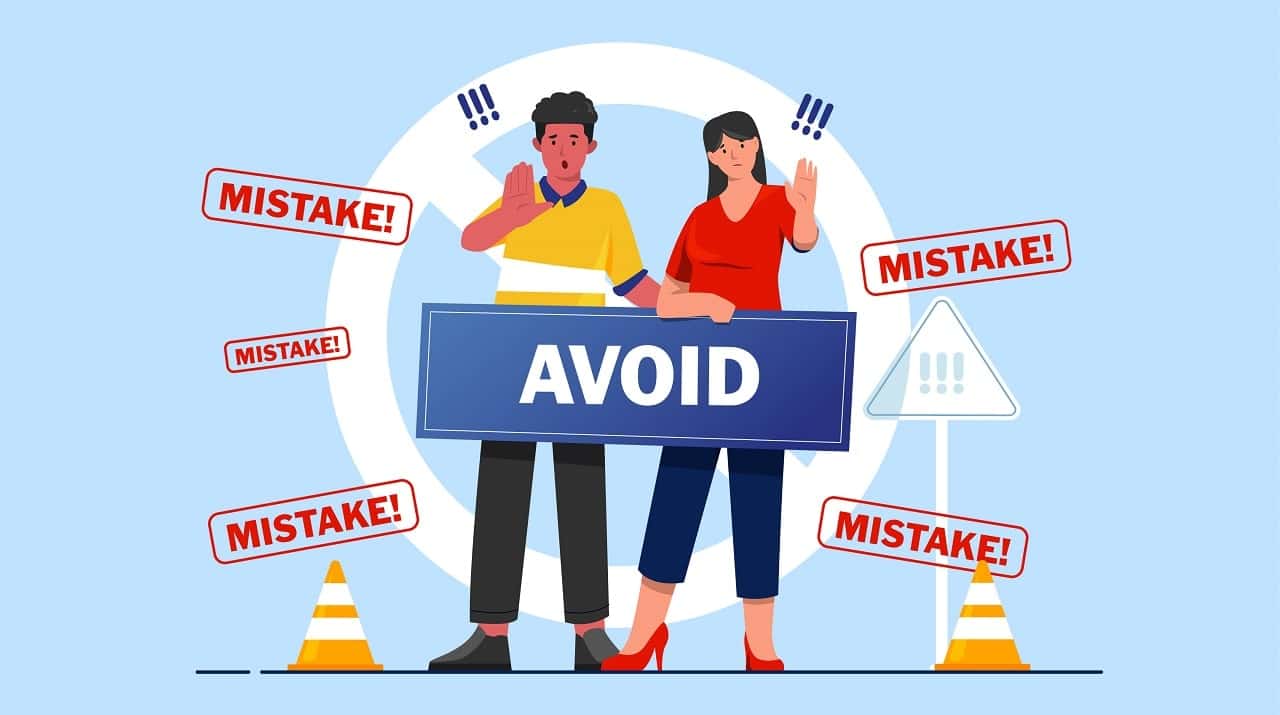
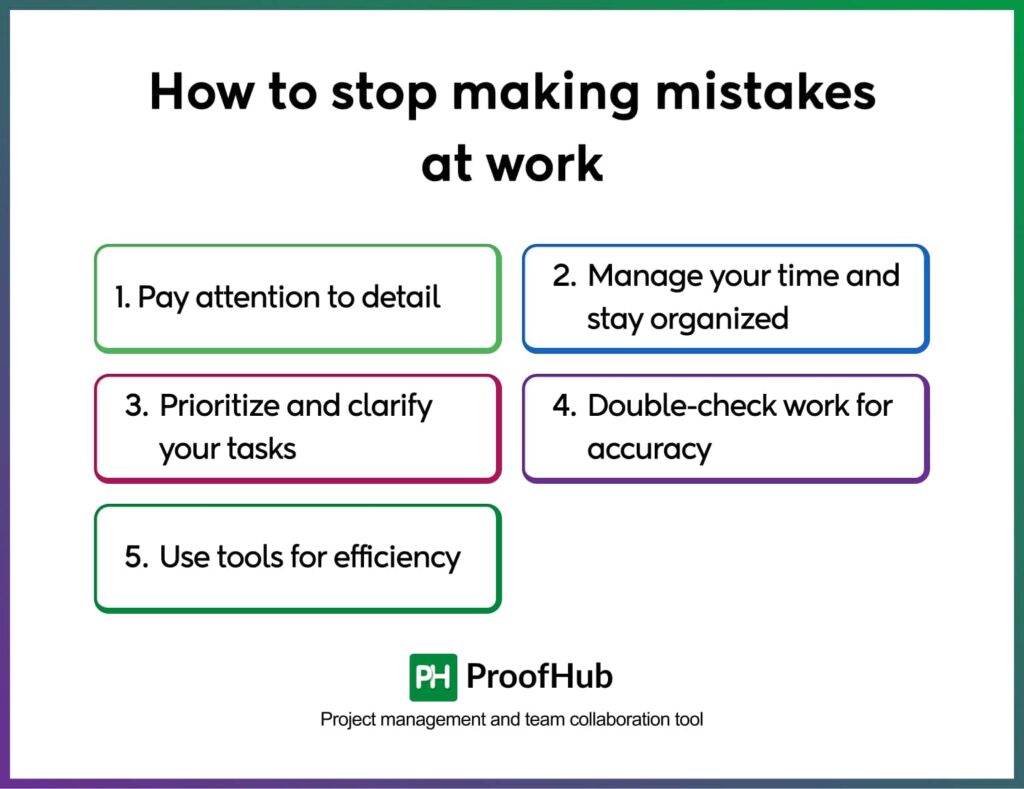

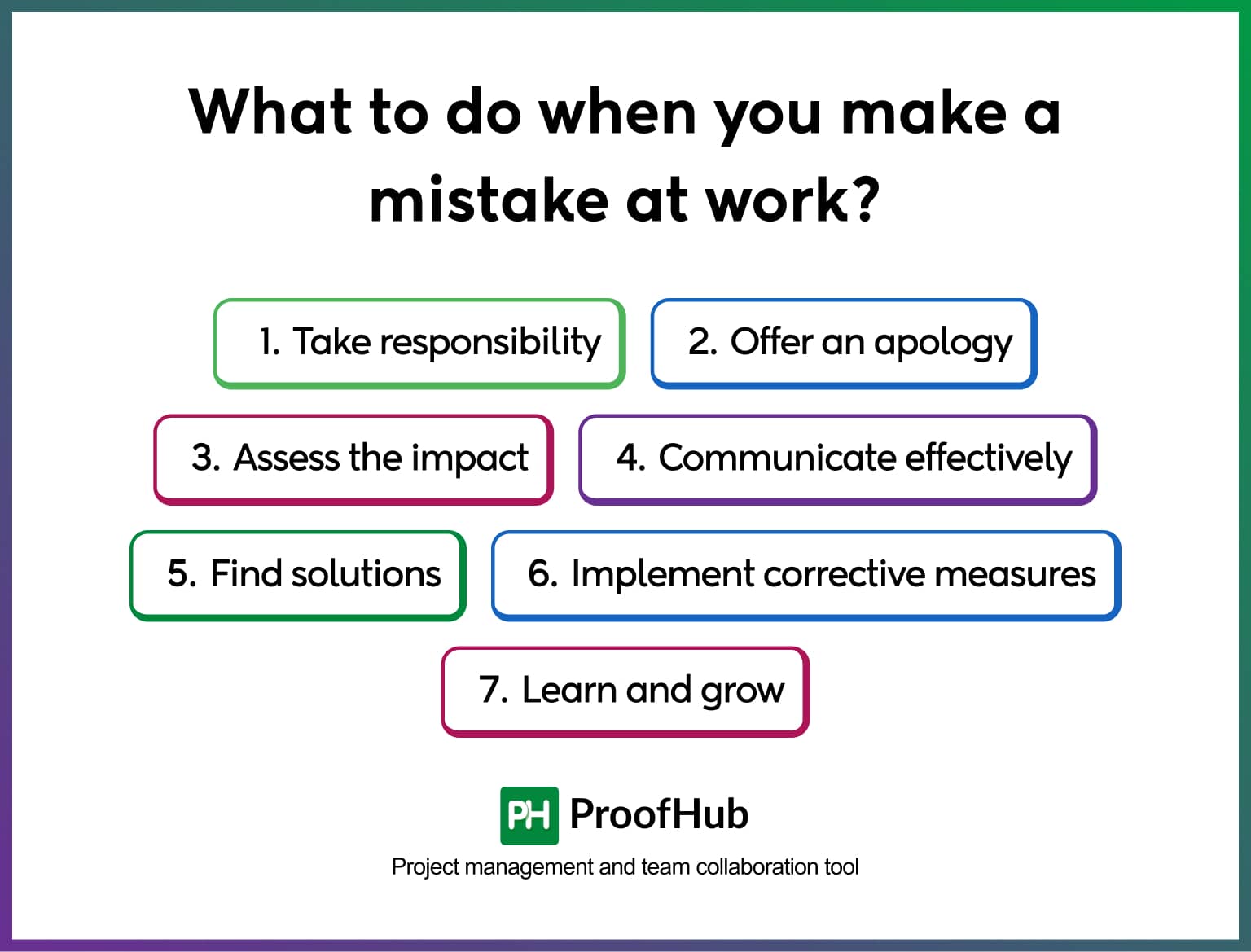








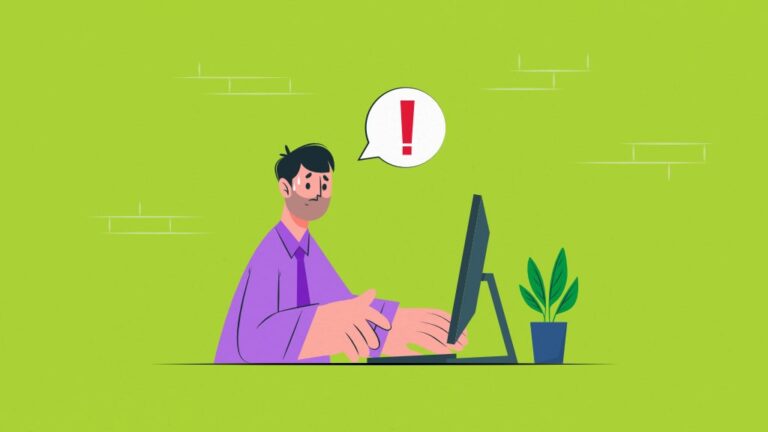
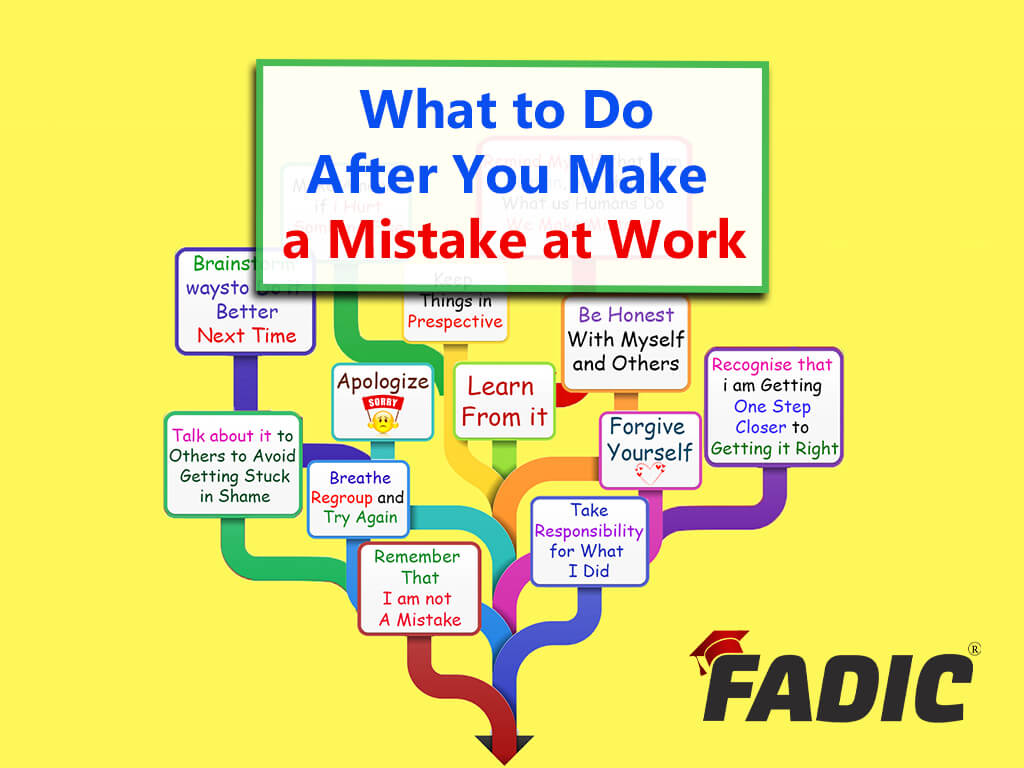
![How To Avoid Making Mistakes At Work [Infographic] I Made A Mistake At Work: The Do’s And Don'ts](https://www.niagarainstitute.com/hs-fs/hubfs/Niagara Institute - I Made A Mistake At Work Do’s And Donts Infographic (1).png?width=1480&height=2724&name=Niagara Institute - I Made A Mistake At Work Do’s And Donts Infographic (1).png)



